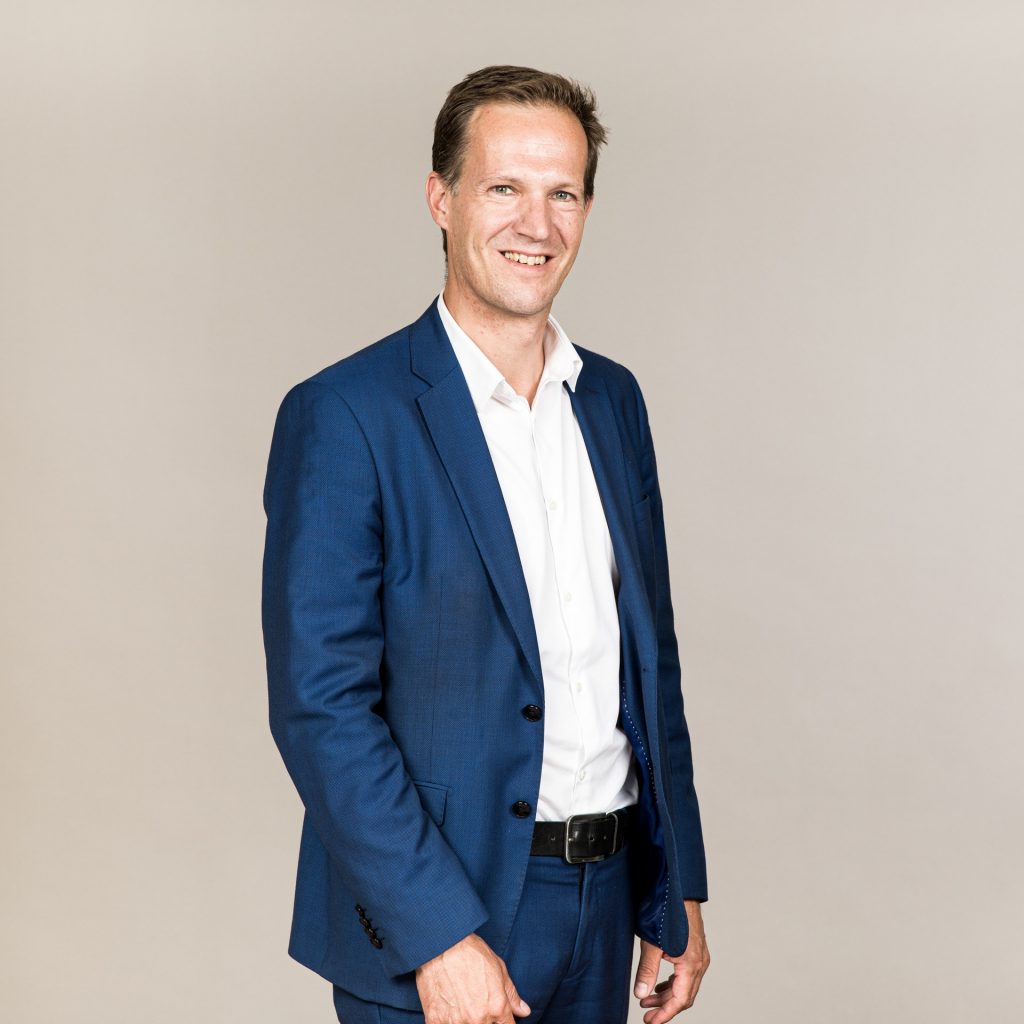Antwerp Management School’s Dean, Steven De Haes, tells Tim Banerjee Dhoul how the School seeks to maximise the benefits of its location in the thriving business environment of a city that is home to one of the world’s largest ports
Antwerp, Belgium, is home to Europe’s second-largest port, a thriving logistics hub, and international companies which use the city as a springboard into the European market. It’s this singular environment that Antwerp Management School (AMS) looks to leverage in its programme offerings, says the School’s Dean, Steven De Haes, among which is one of Europe’s earliest executive MBAs.
Topics covered by De Haes in this exclusive interview with Business Impact include the use of neurotraining to hone leadership skills, AMS’s performance in a new impact-oriented form of Business School rankings and how being able to retain a truly international study experience could act as a potential differentiator, post-Covid-19.
Why is management education important in your country? What is the value it brings to the community you serve?

Due to its open engagement in international trade and business, Belgium has always been at the forefront of global business developments, and especially Antwerp, through its international port activities. Many international companies continue to use Belgium as a springboard to the European market.
Alongside this, management and business education in Belgium has an equally long tradition – the first management education at university level dates from 1852. With the battle for talent growing stronger every year, Business Schools like Antwerp Management School are providing companies and public authorities with the professional talent they need to manage their business activities in a competitive, innovative and sustainable way.
Antwerp Management School celebrated its 60th anniversary last year – its EMBA programme started in 1959 and is one of the pioneers in Europe. Through this, and many other programmes, we are serving the international business community and leveraging the unique international ecosystems in the greater Antwerp area.
In addition, the School’s research and educational activities create awareness among our customers of recent management practices and provide participants with the knowledge and skills they need to make a difference. The School also assists and guides companies and organisations during processes of sustainable transformation and realising a positive impact on society.
How healthy is the current market for business education in your country?
The attractiveness and competitive value of business education in a country like Belgium is founded on several factors. Its location in the centre of western Europe offers an excellent setting to discuss European business practices. Brussels is home to a large number of international institutions, such as the European Union and NATO, but also a great number of international companies have Belgium as their European headquarters. Major business centres like London, Paris and Frankfurt can be reached easily in a few hours, so our School can offer business students direct access to major economic decision-making powers and invite key business leaders to contribute to our programmes on and off campus.
Besides this environment, Belgium has always invested significantly in high-quality, accessible education. A city like Antwerp has the additional advantage of being a major European hub for transport and logistics, while offering a very good quality of living vs. cost of living. The current global situation [caused by the Covid-19 pandemic] puts a lot of pressure on international travel, but due to the factors described above, we are better armed than most to continue offering a truly international study experience.
Can you tell me a bit about the type of people who study at your School and what those who have graduated from your School have gone on to do in the local region and beyond?
Our School offers two types of graduate master’s programmes: full-time master’s degrees and executive master’s degrees. There are nine full-time master’s programmes run over one year of full-time study, with about 250 students. Their average age is 24, and they come from almost 50 different countries worldwide, with a very good gender balance.
There are about 200 students on our four executive master’s programmes, which involve two years of part-time study. Participants are professionals from various sectors, public and private, who want to accelerate or diversify their careers, with an average age of about 37.
In total, AMS now has more than 26,000 alumni in more than 100 countries. While a whole generation of top managers in Belgium have been educated at the School since the 1970s and 1980s, international expansion has been remarkable since the start of the 1990s and many of our alumni have gone on to develop significant careers in their home countries and abroad, in many different sectors.
What do you think makes your portfolio of programmes stand out from others that are available in the country headquarters of your School and the surrounding region?
In the first place, AMS has a strong focus on demonstrating its positive impact on society and the world.
AMS is one of three European Business Schools that are ranked as ‘transforming Schools’ in the Positive Impact Rating (PIR), announced recently at the World Economic Forum in Davos. PIR is a new ranking that goes beyond ordinary rankings to measure societal impact. Today’s young and experienced professionals not only want to get the most out of their careers in the traditional sense, they also want to make a difference in society. They are therefore counting on their Business School to set a good example. PIR assesses seven dimensions of impact: governance and culture, programmes, learning methods, student engagement, the institution as a role model, and public engagement. In other words: walking the talk.
AMS also has a unique opportunity to tap into some international ecosystems present in Antwerp. For example, the port of Antwerp is Europe’s second largest, and is the centre of an extensive transportation and logistics hub. This offers students in our supply chain management programme, as well as those studying our maritime and air transport management programme, the perfect environment to learn and see how the sector evolves, technologically, and from a business perspective.
About which single new programme or initiative are you most excited, and why?
The ‘Global Leadership Skills’ (GLS) programme – an intensive one-year trajectory that is now integrated in all full-time master’s programmes. The idea behind this interdisciplinary programme was to develop an integrated learning journey that would put the values of the School – global, critical, and sustainable mindsets – at the centre of AMS’s full-time master’s programmes, and to engage all students in concrete activities that support these values.
One example of a GLS activity is teams of students setting up their own action-learning project, which is basically a community project that contributes to one of the UN’s Sustainable Development Goals (SDGs).
In these multidisciplinary and international project teams, the students not only acquire important leadership skills but also contribute to raising awareness of the SDGs both inside and outside the School. In this way, we ensure that AMS alumni fully embrace a global, critical and sustainable mindset.
Can you provide an example of how AMS is using online learning and/or new technology to meet the needs of its students?
When AMS moved to a new campus in 2018, this opportunity was used to invest heavily in virtual learning facilities. These allow faculty and staff to apply online teaching and blended learning capabilities across all programmes, and has made the School quite resilient in these challenging Covid-19 times.
AMS also invests in technology-enabled innovations to explore new frontiers of knowledge. Last year, for example, a NeuroTraining LabTM was installed at Antwerp Management School under the guidance of Neuroscience and Strategic Leadership Professor, Steven Poelmans.
Neurotraining is a method for the development of leadership competencies, by observing leadership behaviours in a controlled high-tech setting and measuring the associated neurocognitive activity. Its purpose is to increase EQ, performance and health in professionals by giving task-based neurofeedback. Participants confront emotionally challenging business situations by interacting with one another and a specifically trained actor. Our feedback allows them to observe, and to improve, their responses and behaviour, because we can link their biometric and electroencephalography (EEG) activity to underlying leadership competencies. So far, many enthusiastic responses were received from participants and companies.
How does AMS engage with businesses, government and other public sector organisations in your region?
Managers and business practitioners, often alumni, contribute to the School’s programmes in many ways: guest lectures, meetings with students, company visits, members of project juries and so on. All these activities fit into AMS’s strategy of positioning itself as a trusted partner for organisations in transformation.
In addition, Antwerp Management School has always cultivated strong collaborative links with local, regional and national public authorities. We have an excellent relationship with the city of Antwerp, but also with non-profit organisations, such as hospital networks and cultural institutions.
What does ‘responsible management’ mean to your School and how is this concept introduced to, and instilled into, your students?
For more than 10 years, one of the key elements of AMS’s mission statement has been ‘societal consciousness’. This broad concept combines principles of ethical behaviour, sustainability, personal engagement, social equity and the responsibility of companies and organisations in society as a whole. Introducing these concepts to our students clearly goes beyond teaching and reflection.
Students are actively involved in community projects, for example, and are encouraged to integrate these issues in their reports and projects. They are even asked to challenge their peers, faculty, companies and the School itself on these matters. Antwerp Management School is also a signatory to the UN’s Principles of Responsible Management Education (PRME) and one of the founding institutions of its Benelux-France chapter. The PRME are a very useful instrument in making students understand what responsible management is, and they are actively used in their study programmes. We ask students to voluntarily become ambassadors of these principles, and many embrace this role enthusiastically.
What plans does your School have for the next three years and what developments would you like to see?
Since the current health crisis, this question has become a lot more difficult to answer. Before Covid-19, Antwerp Management School was on a journey of steady growth through a careful balancing of our programme portfolio. We were, and we are, developing innovative approaches to become a truly responsible and sustainable Business School with personal attention for each student, and a focus on developing the best leaders, not ‘of’ the world but ‘for’ the world.
The changing circumstances that we are now facing only confirm the importance of the choices we have made and strengthen our determination to continue to pursue these goals. Realising them will require additional resilience and creativity, but we are convinced that the innovative spirit of the School will enable and accelerate this transformation and eventually strengthen our market position.
Steven De Haes, PhD, is Dean of Antwerp Management School (AMS) and Professor of Digital Strategy and Governance at AMS and the University of Antwerp, Belgium.
This article is taken from Business Impact’s fifth edition in print.




























